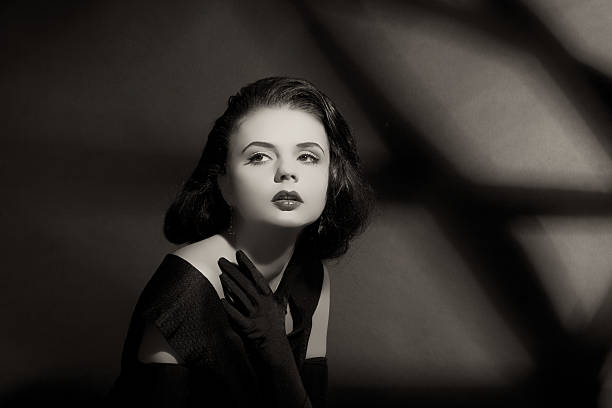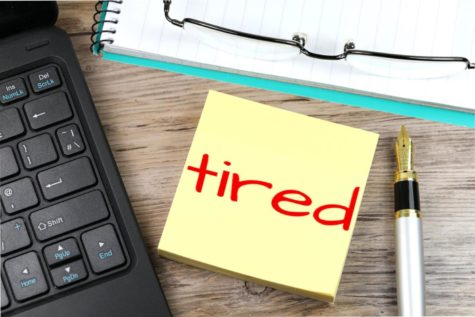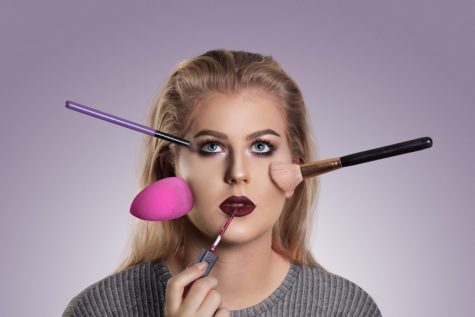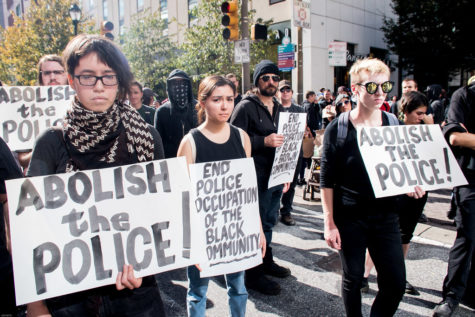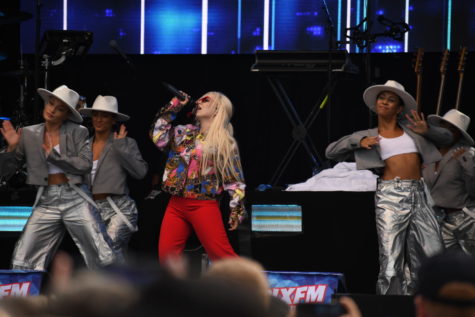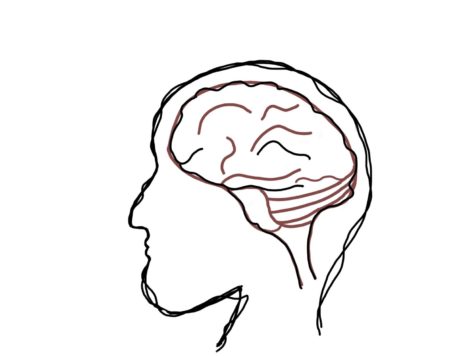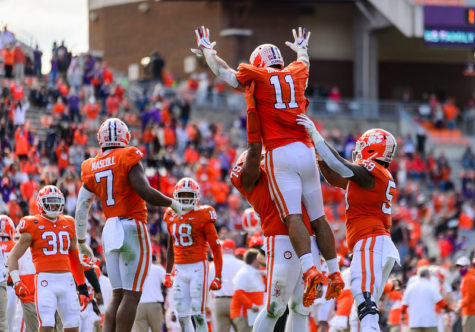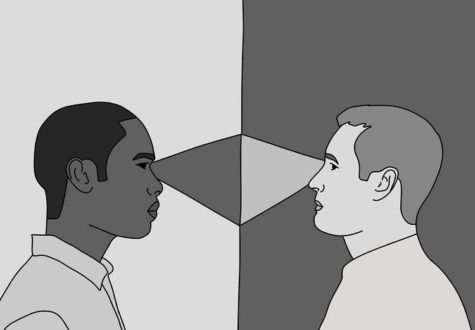Is the Femme Fatale Truly Empowering?
After a century of Femme Fatale’s being a hyper-femenine symbol of empowerment, their influence is being questioned.
Emulation of vintage style photo.Grain and Noise added for more film effect.See the Lightbox
September 3, 2021
The bold, the cold, the manipulative, and the beautiful woman. The Femme Fatale. The Femme Fatale is french for fatal woman, and the trope’s name symbolizes a dangerous woman who directs her destructive abilities towards men for her own benefit.
During the Golden Age of Hollywood many Femme Fatales were played by alluring women such as Marilyn Monroe, Sophia Loren, Bridgitte Bardot, and Rita Hayworth. In modern film we see actresses such as Meghan Fox, Nina Dobrev, Brianne Howey, and Leighton Meester play these women.
Second wave feminism had a large part in the emergence and the degradation of femme fatales. Although not all second wave feminist shared the same views, this era of feminism caused many feminists to look down upon women who took on more traditional female roles such as using their beauty and influence on men to their benefit. This is because of the fact that sexist ideals, such as a woman has to abandon her sense of femininty in order to be taken seriously in the professional world, have been so ingrained in our society that even movements that claim to be progressive can possibly contribute to the same systems that they are trying to combat or destroy.
Because of that many women who claimed to be feminists shamed traditional women, traditionally beautiful women, or femme fatales just like their male counterparts did because of their fear of these alluring women holding all women back as a whole.
Fortunately, third wave feminism allows for an more intersectional and inclusive type of feminism that allows for women to choose which lives they want to live without being subjected to shame.
That is why in recent years many Femme Fatales have become the center of celebration instead of the target of criticism. Feminists of this age admire the way that these women were able to exploit the sexist system that was supposed to be oppress them in order to benefit from the system, but the Femme Fatale trope has its pros and cons.
Although the knowledge that the Femme Fatale has that allows them to work the system is admirable, the aspect of the Femme Fatale’s story that remains sexist is their outcome.
The intention of the Femme Fatale in early Hollywood emphasized the importance that women need to be tamed by marriage and home-making or else they will exploit the sexist system and use it to their advantage. This message was especially important because of the World Wars causing women to experience more freedom to do as they pleased since their husbands were away.
Therefore Femme Fatales were only meant to be cautionary personalities that can either be redeemed by claiming a sense of innocence, loyalty, and naivety towards a man who swooped her off her feat, or she can be destroyed by being caught in the act which leads her to jail time or death.
At the same time, in a world where women are expected to remain on a lower pedestal as a man, our society feels like at times we must give credit to women who are willing to prosper under a sexist system even if there ways of doing so are controversial.
This is what caused the media commentary channel, The Take to define the trope as, “Both sexist and empowering.” Although the Femme Fatale was made to be a cautionary tale in order to discourage women from attaining power, the Femme Fatale is also strongly admired because of how they use the resource of beauty to get far in life when social standards are going against them.
The Femme Fatale is a complicated trope because of the grey-area between sexism and female liberation. Because of that many people have accepted that maybe the Femme Fatale falls into both categories. That is why in order to make sure the Femme Fatale is protected and uplifted in the most humane way possible, we must take in consideration the oppressive nature of this female trope while making sure she is celebrated for her abilities.



